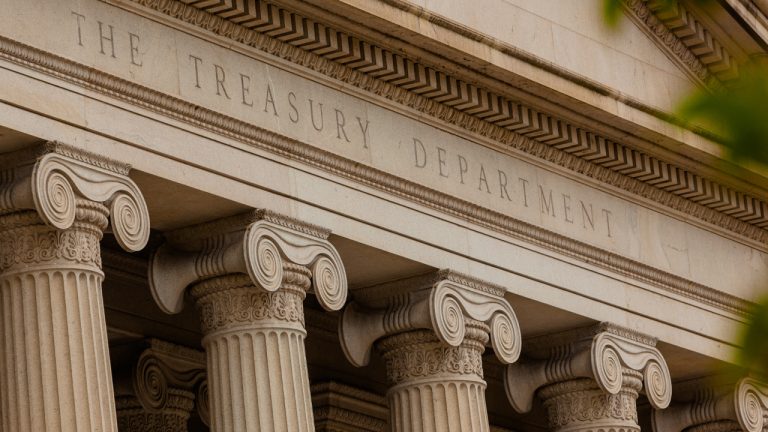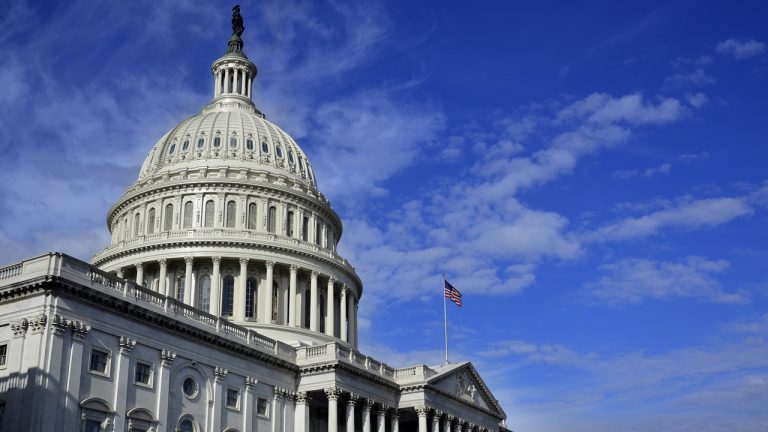 After the fall of Samourai Wallet’s founders, a new platform emerged from a mysterious group who forked the project, naming it the Ashigaru Open Source Project. The team behind Ashigaru has shared their vision, stating, “Anyone should be able to engage in peaceful, voluntary and private commerce on the internet without tracking, surveillance or censorship.” […]
After the fall of Samourai Wallet’s founders, a new platform emerged from a mysterious group who forked the project, naming it the Ashigaru Open Source Project. The team behind Ashigaru has shared their vision, stating, “Anyone should be able to engage in peaceful, voluntary and private commerce on the internet without tracking, surveillance or censorship.” […] Republican Senator Ted Cruz from Texas has announced that he purchased three application-specific integrated circuit (ASIC) bitcoin miners. “I just bought 3 Bitcoin miners that started hashing today in Iraan, TX,” the Senator stated on X this week. “I’m proud to join the ranks of Texas bitcoin miners,” he added. Cruz is an ardent advocate […]
Republican Senator Ted Cruz from Texas has announced that he purchased three application-specific integrated circuit (ASIC) bitcoin miners. “I just bought 3 Bitcoin miners that started hashing today in Iraan, TX,” the Senator stated on X this week. “I’m proud to join the ranks of Texas bitcoin miners,” he added. Cruz is an ardent advocate […] In the wake of Florida Governor Ron DeSantis’ remarks in Jacksonville on Tuesday, both the Florida House of Representatives and Senate have approved the state’s anti-central bank digital currency (CBDC) legislation, dubbed SB 7054. The bill explicitly states that should the U.S. central bank, a federal agency, or a foreign government issue a CBDC, its […]
In the wake of Florida Governor Ron DeSantis’ remarks in Jacksonville on Tuesday, both the Florida House of Representatives and Senate have approved the state’s anti-central bank digital currency (CBDC) legislation, dubbed SB 7054. The bill explicitly states that should the U.S. central bank, a federal agency, or a foreign government issue a CBDC, its […] A central bank digital currency (CBDC) may turn out to be the “single largest assault to financial privacy since the creation of the Bank Secrecy Act,” a policy analysis document released by CATO Institute has said. To stop the U.S. Federal Reserve and Treasury from threatening the financial system with the CBDC, the document said […]
A central bank digital currency (CBDC) may turn out to be the “single largest assault to financial privacy since the creation of the Bank Secrecy Act,” a policy analysis document released by CATO Institute has said. To stop the U.S. Federal Reserve and Treasury from threatening the financial system with the CBDC, the document said […]
Ted Cruz said it is “more important than ever” to ensure the financial privacy of American citizens is preserved.
Republican Senator Ted Cruz has introduced a bill to block the United States Federal Reserve from launching a “direct-to-consumer” central bank digital currency (CBDC).
In a March 21 statement, Cruz said he introduced the bill to prevent the Fed from developing a retail CBDC “which could be used as a financial surveillance tool by the federal government.”
Cruz stated it’s “more important than ever” to ensure U.S. policy on digital currencies protects “financial privacy, maintain’s the dollar’s dominance and cultivates innovation,” and added:
“CBDCs that fail to adhere to these three basic principles could enable an entity like the Federal Reserve to mobilize itself into a retail bank, collect personally identifiable information on users, and track their transactions indefinitely.”
Cruz claimed the federal government has “no authority to unilaterally establish” a CBDC.
“We should be empowering entrepreneurs, enabling innovation, and increasing individual freedom — not stifling it,” he stressed.
The federal government has no authority to unilaterally establish a central bank currency.
— Senator Ted Cruz (@SenTedCruz) March 21, 2023
Read about my new bill in @FoxBusiness: Ted Cruz introduces bill blocking Fed from adopting central bank digital currencyhttps://t.co/LoX3u41nA4
Cruz’s anti-CBDC bill has the backing of Republican Senators Mike Braun of Indiana and Chuck Grassley of Iowa.
In statements, both expressed the belief that a CBDC would be used as a surveillance tool.
If the bill is passed into law, it would ensure that the state isn’t “snooping” on the finances of hardworking Americans, Grassley stated:
"The American people ought to be able to spend their money how they choose without the possibility that every transaction could be tracked by the government."
The anti-CBDC bill is a second attempt by Cruz, Braun and Grassley, who introduced a similar bill on March 30, 2022 to prohibit the Fed from issuing a CBDC directly to individuals.
However, nearly 12 months later, the bill still hasn’t moved past the introduction phase.
Meanwhile, considerable progress is being made on a U.S. dollar CBDC since President Joe Biden signed an executive order to “Ensuring Responsible Development of Digital Assets” in March, 2022.
In November, the Federal Reserve Bank of New York and several large financial firms including BNY Mellon, Citi, HSBC, and Wells Fargo participated in a 12-week digital dollar pilot program with MasterCard and SWIFT.
Related: ‘Programmable money should terrify you’ — Layah Heilpern
Cruz, Braun and Grassley aren’t the only U.S. politicians fighting to stamp out CBDCs.
On March 20, Florida’s Governor Ron DeSantis called on state lawmakers to introduce legislation banning the digital dollar in Florida.
DeSantis compared the digital dollar to China’s digital yuan and claimed the e-CNY has been used to extensively “monitor citizen behavior,” saying:
“Any way they can get into society to exercise their agenda, they will do it. So, what the central bank digital currency is all about is surveilling Americans and controlling behavior of Americans.”
No CBDC in Florida https://t.co/p9pwSTmrlN
— Ron DeSantis (@GovRonDeSantis) March 20, 2023
U.S. Congressman Tom Emmer recently introduced an anti-CBDC bill of his own on Feb 22.
Emmer also spoke of the privacy concerns surrounding CBDCs saying a programmable dollar could be “easily weaponized” as a spying tool to “choke out politically unpopular activity.”
Magazine: Are CBDCs kryptonite for crypto?

Congressman Tom Emmer made the anti-central bank digital currency comments to an audience at the Cato Institute, a libertarian think tank in Washington.
United States Representative Tom Emmer believes the launch of programmable central bank digital currency in the country could strip American citizens of their financial privacy.
Speaking on March 9 at the Cato Institute, a Washington D.C.-based libertarian think tank, Emmer explained that the programmable CBDC would be “easily weaponized” as a spying tool to “choke out politically unpopular activity,” among other things:
"As the federal government seeks to maintain and expand financial control to which it has grown accustomed, the idea of the central bank digital currency has gained traction within the institutions of power in the United States as a government-controlled programmable money that can be easily weaponized into a surveillance tool.”
The Minnesota congressman introduced the CBDC Anti-Surveillance Act on Feb. 22 to halt the progress of the Digital Dollar Project, which has seen considerable developments in how it would be used since the second version of its white paper was released in mid-January.
“Recent actions from the Biden Administration make it clear that they are not only itching to create a digital dollar but they are willing to trade Americans' right to financial privacy for the surveillance-style CBDC,” he added.
The Blockchain Regulatory Certainty Act
— Tom Emmer (@GOPMajorityWhip) March 9, 2023
The Securities Clarity Act
The Safe Harbor for Taxpayers with Forked Assets Act
The CBDC Anti-Surveillance State Act
The future of crypto in the US will be determined by Congress and the American People - not the Administrative State. pic.twitter.com/OQ0uwxjVxX
Emmer suggested that the blockchain-enabled “ownership economy” is “threatening” many bureaucrats in Washington, as it “shifts economic power from centralized institutions back into the hands of the people.”
While the latest Federal Reserve discussion paper explained that it would only issue the CBDC in the context of “broad public and cross-governmental support," Emmer and many others are concerned with the potential dangers that could ensue:
“It not only tracks transaction level data down to the individual user but also the ability to program the CBDC to choke out politically unpopular activity.”
Related: ‘Programmable money should terrify you’ — Layah Heilpern
Emmer also argued that decentralized cryptocurrencies can serve as a solution to the mismanagement of the U.S. monetary system and restore many of the “American values” that led the nation to become an economic powerhouse in the 20th century — privacy, individual sovereignty and free markets.
He added that by even experimenting with CBDCs, the U.S. is going against these values:
“Nothing could be more dangerous than adhering to a manufactured sense of urgency like this and ultimately developing a CBDC that is not open, permissionless and private.”

Fanusie doesn’t believe the Chinese-led CBDC movement on the global stage will replace the U.S. dollar, but it may cause a series of geopolitical headaches.
A cryptocurrency researcher and former CIA analyst believes the United States government’s relatively slow start on Central Bank Digital Currency (CBDC) development may result in it losing grip on controlling the global financial system.
Yaya Fanusie, the policy head at the crypto advocacy group the Crypto Council for Innovation explained in a Feb. 28 Bloomberg interview that sanctioned states are looking to transact on financial infrastructure that isn’t controlled or heavily influenced by the U.S. in order to move funds more freely cross-borders.
If the U.S. continues to sit on the “sidelines” and lag behind on CBDC adoption, Fanusie believes this may spell “trouble” and cause unforeseen “geopolitical implications” over time:
Fanusie explained that state-issued CBDCs could be a part of this financial infrastructure that becomes globally adopted, and that if the U.S. has little influence over these new standards, then this “impacts U.S state economic statecraft.”
“The potency of our sanctions power comes from the centrality of the U.S. to the financial global infrastructure. So if that shifts a little bit, it doesn't mean that China is going to take over or that the yuan is going to displace the dollar but if there's a viable new rail where sanctioned actors can now transact, that’s trouble.”
The U.S. Federal Reserve has however recently made progress on its CBDC — the Digital Dollar Project — having released the latest version of its whitepaper on Jan. 18:
Today we are proud to release DDP's 2023 white paper update where we revisit our "champion model" proposed in 2020, provide recommendations to the US government and private sector and look ahead to the next stage in #CBDC developments @giancarloMKTS https://t.co/bX5u4zfqMc pic.twitter.com/si2joxbkq9
— The Digital Dollar Project (@Digital_Dollar_) January 18, 2023
However, the Federal Reserve has not received approval from the U.S. government to proceed with the CBDC project.
Fanusie highlighted that China has benefited from a near-first mover advantage, having explored CBDCs since 2014 and launching the pilot version of its digital yuan (e-CNY) on Jan. 4, 2022, which Fanusie says has processed “millions of transactions” across “millions of wallets” so far.
Fanusie added that there is an “array of pilots” testing out smart contracts to add programmability into the CBDC and that China helping other countries adopt similar standards.
He added there is possibly an unspoken “race” going on in the CBDC frontier as nations look to gain a geopolitical edge.
“That's happening whether we want to like it or not.”
However previous commentators on the CBDC race between China and the U.S. have said that China’s CBDC ambition is purely about domestic dominance rather than trying to beat the U.S. dollar.
Related: What are CBDCs? A beginner's guide to central bank digital currencies
CBDCs run on state-controlled ledgers, which are reported to be more efficient and easier to use in some cases than decentralized public networks, such as Bitcoin and Ethereum.
However, some opponents of CBDCs believe states are adopting blockchain-powered CBDCs to maintain a degree of financial control over their citizens.
Part of the pushback in the U.S. recently came from pro-crypto U.S. Congressman Tom Emmer, who recently introduced the CBDC Anti-Surveillance State Act in an effort to protect the financial privacy of U.S. citizens from actions by the Federal Reserve:
Today, I introduced the CBDC Anti-Surveillance State Act to halt efforts of unelected bureaucrats in Washington, DC from stripping Americans of their right to financial privacy. pic.twitter.com/lONbHFZMk7
— Tom Emmer (@GOPMajorityWhip) February 22, 2023
 On Monday, Wasabi Wallet and the open-source bitcoin payment processor Btcpay announced a new plugin for the Btcpay server. The plugin implements Wasabi’s Wabisabi coinjoin coordination protocol, allowing merchants to benefit from privacy enhancement. By activating the newly launched plugin, all the funds that merchants receive and send will be coinjoined, or mixed together with […]
On Monday, Wasabi Wallet and the open-source bitcoin payment processor Btcpay announced a new plugin for the Btcpay server. The plugin implements Wasabi’s Wabisabi coinjoin coordination protocol, allowing merchants to benefit from privacy enhancement. By activating the newly launched plugin, all the funds that merchants receive and send will be coinjoined, or mixed together with […] The non-profit that focuses on policy issues facing cryptocurrencies, Coin Center, has filed a lawsuit against the Treasury department, the secretary of the Treasury Janet Yellen, and the Office of Foreign Assets Control’s (OFAC) director Andrea Gacki. Coin Center’s court filing says that the government’s sanctioning of Tornado Cash exceeds the Treasury’s statutory authority. The […]
The non-profit that focuses on policy issues facing cryptocurrencies, Coin Center, has filed a lawsuit against the Treasury department, the secretary of the Treasury Janet Yellen, and the Office of Foreign Assets Control’s (OFAC) director Andrea Gacki. Coin Center’s court filing says that the government’s sanctioning of Tornado Cash exceeds the Treasury’s statutory authority. The […] On August 15, the non-profit that focuses on policy issues facing crypto assets, Coin Center, published a blog post that says the organization is looking at the legality of the recent Tornado Cash sanctions enforced by the U.S. Treasury Department’s Office of Foreign Asset Control (OFAC). The post, published by Coin Center’s Jerry Brito and […]
On August 15, the non-profit that focuses on policy issues facing crypto assets, Coin Center, published a blog post that says the organization is looking at the legality of the recent Tornado Cash sanctions enforced by the U.S. Treasury Department’s Office of Foreign Asset Control (OFAC). The post, published by Coin Center’s Jerry Brito and […]